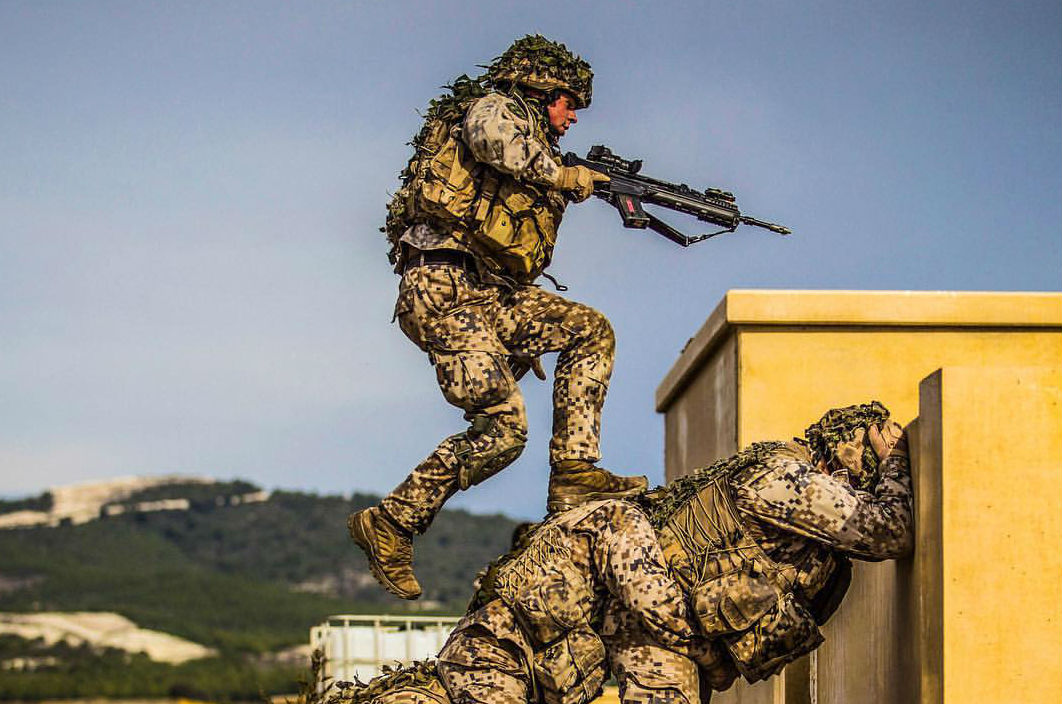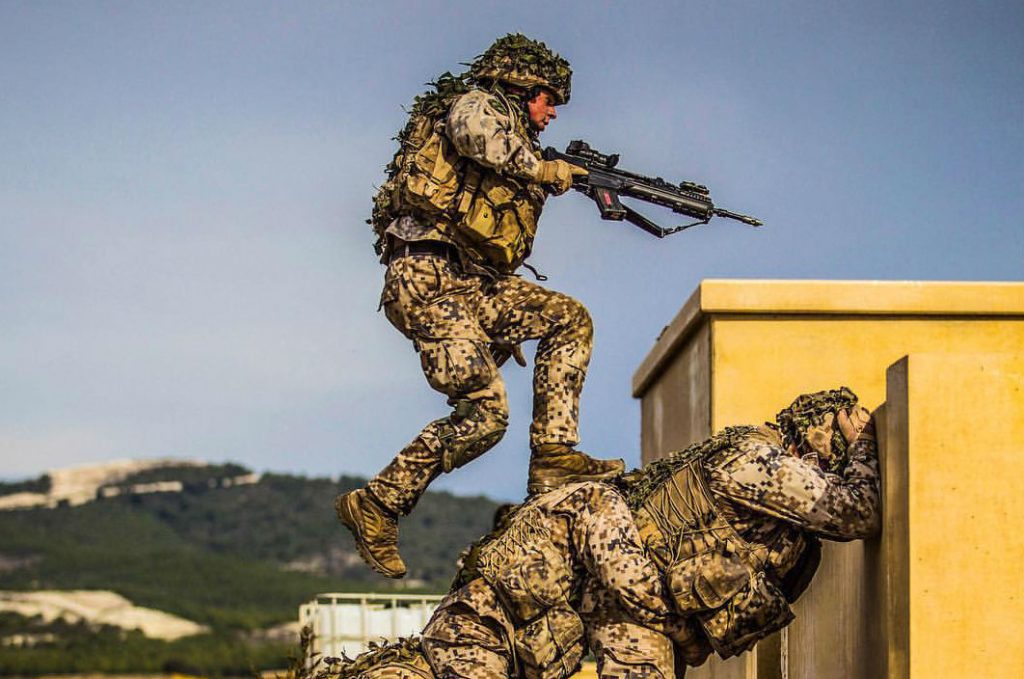 NATO leaders intended the Alliance’s Trident Juncture military exercises, in part, to send a message to Russia that they would not hesitate to defend allied territory. That intention was commendable. But one wonders how exercises in the western Mediterranean will deter Russian ambitions that lie 3,000 km away in Ukraine and on the borders of Estonia, Latvia, and Lithuania. In fact, NATO as an alliance has done precious little to support Ukraine, and not nearly enough to defend its allies.
NATO leaders intended the Alliance’s Trident Juncture military exercises, in part, to send a message to Russia that they would not hesitate to defend allied territory. That intention was commendable. But one wonders how exercises in the western Mediterranean will deter Russian ambitions that lie 3,000 km away in Ukraine and on the borders of Estonia, Latvia, and Lithuania. In fact, NATO as an alliance has done precious little to support Ukraine, and not nearly enough to defend its allies.
Regarding Ukraine, NATO has set up Trust Funds for things like ordnance disposal and logistics help—worthy but marginal projects that will have little impact and take years to implement. These are enough to convince ourselves that we have done something, but not enough to help Ukraine really, at least not now.
Perhaps a little aid is better than none, but sometimes nothing is better than something if the denial is honest and clear. Better that than the simmering resentment of continually disappointed expectations. Just ask the Georgians.
As Allies, the Baltic countries are another matter. There, small numbers of Allied-country soldiers are stationed under bilateral arrangements. But not a single combat infantryman is yet under the NATO flag.
A much-ballyhooed rapid-reaction ‘spearhead’ force won’t be fully operational until next year. Even then, it would take days to transport a few thousand soldiers to a conflict. Deploying the forty thousand soldiers of the NATO Response Force would take far longer.
Meanwhile, Russia can mobilize one hundred thousand soldiers close to the border with practically no warning. What if Russian President Vladimir Putin closed the Suwalki Gap in Lithuania? It might all be over before the cavalry was en route.
This isn’t the first time that a revanchist power has threatened a status quo power, and the dilemmas are familiar. The Alliance’s goals suffer from their power-diffusing generality. The West tries to defend everything at once, including the ‘right‘ to choose one’s security alliances and the ‘values‘ of the Euro-Atlantic community. Putin’s goals benefit from their force-multiplying specificity. He doesn’t care about rights and values. He wants dominion over Russian-speaking peoples—towns, cities, and regions. The West clings in vain to its principles; he just grabs stuff.
The solution is to bring to bear the West’s far greater collective power for deterrence. For example, the West could station a few thousand troops in the Baltics under NATO command. But some Allies still cling to the NATO-Russia Founding Act, believing that any permanent stationing of troops would violate the Act’s spirit. Putin’s ripped up the Act, as well as the Conventional Forces in Europe Treaty that the Act’s language depended heavily upon. But Allies are determined to hold together its fragments, even as the pieces fall between their fingers.
Allied leaders appear to hope that the days of good feelings that Medvedev presided over could return, after the oil money runs out. It’s possible that Putin’s dreams of nationalist grandeur will collapse along with crude’s prices. It’s also possible that he could become more desperate, making deterrence all the more necessary now.
But in a sense, we’re witnessing a return to normalcy, not its suspension. The West is paying the price for not doing more to integrate Russia into Euro-Atlantic institutions in the 1990s, when it had the chance. After feeling humiliated and abandoned for so long, Russia has followed what it believes to be its own predatory national interest, defined in the most narrow and jingoistic terms—just as ours so often is.
This fact explains, in part, the bitter Russian reaction to the future accession of tiny Montenegro. The Allies’ laudable intention is to deter Putin without provoking him, but they end up provoking him without deterring him.
If we’re going to deter, then let’s deter. NATO promised to preserve Baltic security. At the time, Russia wasn’t a threat. Now it is. Treaties don’t expire when conditions change; they’re signed because they might.
But with his probing and provocations, Putin threatens to expose NATO enlargement’s dirty little secret: the Alliance will only guarantee a member’s security if it’s safe. Such a guarantee is not security but an illusion, and it encourages just the sort of adventurism the Alliance is meant to prevent. Putin’s intimidation and Allied divisions have stuffed NATO back into its old, small, and most reactive box of collective defense. We should be deterring Putin. Instead, he’s deterring us.
Patrick Stephenson was a speechwriter for the NATO Secretary General from 2011 to 2015.
He is also an Atlantic Council Member.
Learn more about the Atlantic Council Members Program by clicking here.
Image: Baltic battalion soldiers work together to breach a barrier during urban warfare training in San Gregorio, Spain, as part of Trident Juncture, which is the biggest NATO exercise in more than a decade. Credit: Allied Join Force Command Brunssum Facebook Page.
